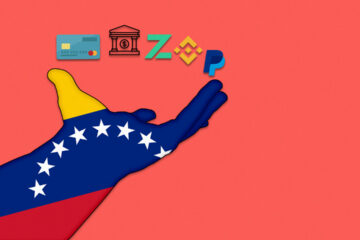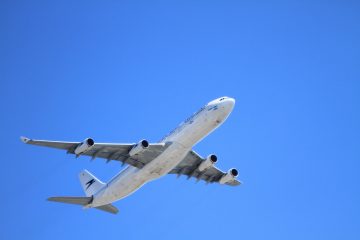The inner politics in every country in the world and its respective dynamics will always generate its own fair share of crazy and wild stories starring the local politicians. Some go public and thanks to the “magic” of the internet, viral these days — while others are never even publicly confirmed, living in a sort of limbo between gossipy hearsay and a conspiracy theory.
Venezuela, which has now gone through over five years under the same authoritarian socialist regime, without a doubt, has generated far too many stories, some funny, some tragic, and much more that are simply infuriating.
Living through all of it makes you hear all sorts of crazy theories. Years ago, someone once told me that when Hugo Chávez decided to change Venezuela’s official timezone from GMT -04 to -04:30 was part of a “ritual” to cement its iron grip on the country, while Venezuela going back to GMT -04:30 was part of Nicolás Maduro’s attempt to “reverse” that ritual to his benefit.
Another, related “theory” someone else told me, is that the ruling regime “sprinkled” some kind of ashes and dust across the valley of Caracas to make the capital’s inhabitants “docile” and numb so they would not rebel against the regime.
Yet another such conspiracy theory states that when Chavez decided to profane the tomb of our independence hero and founding father Simón Bolívar on a late-midnight live televised broadcast held upon a full moon he unleashed a curse that eventually claimed the lives of many of those involved.
I don’t know about you and what you believe, but this last one might be real because Chávez would die of cancer less than three years later while other members of his regime, which had a part to do in it, died drowning, of a stroke, heart attack, and other untimely maladies in the following months/years.
And that finally brings us to the subject of this article: the mystery surrounding Hugo Chávez’s actual time of death.
Officially, the story’s tl;dr goes as follows: Hugo Chavez allegedly underwent surgery in Havana, Cuba in June 2011 after having some health complications. He publicly declared that he had some undisclosed form of cancer shortly afterwards. He underwent another surgery, chemotherapy, and “won” the October 2012 presidential election (which was supposed to take place in December 2012 but the date was pushed to accommodate him just like that).
He would then show up here and there, until December 8, 2012, when he publicly addressed the country to say that he’d go back to Cuba for another surgery and more treatments — essentially saying his final farewells, but not before urging his followers to vote for Nicolás Maduro should something happen to him.
He was not publicly heard from or seen since that day despite claims from regime-affiliated people and/or sympathizers. The regime would go onto saying that he was recovering, but then admitted that his situation was dire.
He eventually “returned” to Venezuela, and his swearing-in ceremony, which should’ve taken place on January 10, 2013, was simply postponed after a court order basically said he could do it whenever he felt better, and “started” his new term despite not being sworn-in at the time. He “carried out” his duties for a couple weeks, then “died” on March 5, 2013.
I put big quotes on that because there’s enough reason to believe that Hugo Chávez actually died in late December, and everything that his successors did over the following weeks was to re-enact their own version of the 1989 movie Weekend at Bernies.
The entirety of the now so-called Maduro regime, which is now over eleven years old, was built on a lie.
At the time, this was a huge hearsay and conspiracy theory that, because of the natural passage of time, fizzled out, but also because things started to go really bad in the country, fast, so everyone had other priorities.
Should this have mattered more and be pursued at its due time? Absolutely. Swearing in a dead dictator, and having him “sign” stuff isn’t legal as far as I know, then again, it is an authoritarian regime, so arguing the legality of their actions is a moot point.
Does it matter now? Not really, I guess. I mean, they have absolute control of the power, and even if this was 100-percent confirmed they’re not suddenly going to say “alright, you caught us, we better relinquish power because this whole thing was a farce.” That ain’t happening.
But is there proof of Chávez not actually dying in December 2012 and not in March 2013 as the official story goes? Of course.
I’m going to preface this first with a piece of anecdotal evidence. Back in mid-2011, when I was working abroad at an embassy as a local underpaid staff, my boss straight up knew about Chávez’s cancer diagnosis an entire month before he publicly announced it.
My boss never actually leaked the info, and never told me that she knew about it until after Chávez’s official announcement. I remember when she found out, though. Because I had on that day I had to accompany her to serve as a translator for a meeting at that country’s state-oil company HQ (spoilers: they wanted some of that sweet cheap Venezuelan oil, which many countries in the region got in exchange for their loyalty and silence).
I have other reasons to remember that day because after the meeting we had to deal with some car problems, and returned to the office kinda late because of it. My boss decided to order some lunch because we were both fat and hungry — but, while we were waiting for it to arrive, she received an urgent, important private call, and told me to leave her office.
Her mood completely changed after that call, and despite her having asserted how hungry she was, she barely ate from that meal. I didn’t realize what was up until much later when she told me that the call was from a higher-up telling her that Chávez had cancer but that things wouldn’t go public until much later.
But that doesn’t prove anything on its own, I know. It should however, serve as an appetizer of how the regime worked to handle the late dictator’s cancer discourse, and how, if they withheld the news of his diagnosis for about a month from the public, they could’ve also easily withheld the news of his death until it was more convenient for them to announce it.
December 28, 2012
This is, perhaps, the date when Chávez actually died. Venezuela, like many other countries, has public festivities and events on New Years eve, and preparations for one such government-sponsored event in Caracas were underway that week, just like any other year.
The event in question was abruptly suspended and its stage set dismantled after the regime announced that Chávez was in a “delicate” state of health.
Then, on 2018, Luisa Ortega Díaz, who served as the regime’s prosecutor general until her fall from grace with the ruling socialists and eventual exile, admitted that she was informed by strongman (and suspected drug lord) Diosdado Cabello that the late dictator had died on that day — but then was told that he “didn’t.”
She said at the time:
"I was out of the country on December 28 (2012) and Diosdado called me: 'come on, Chávez is dead'. We were buying tickets to return to Venezuela, but later he called me to tell me that he did not die. I tell you what happened, as it is. I always asked for Chávez's death certificate, the issue of the daughters, of the other daughters he had, all those things, we even have an investigation on that case.”
Chávez’s former chief of security claimed something similar in 2015, that the dictator actually died on December 30, 2012.
Regardless of the two-day difference, delaying the announcement until March 5 effectively gave Maduro, Cabello, and others about eight weeks to figure and plan things out, distribute power quotas, settle internal disputes, and hook friends and family with new government positions or what have you, not just at a high-ranking level, but also at local government levels, public offices, institutions, or anywhere with a budget, really.
That is perhaps, why they did it — if they did it.
Hugo Chávez's digital signature
If the socialist regime waited around one month to go public on Chávez’s cancer diagnosis — which, by the way, they have never said what type of cancer it was — then it shouldn’t be wild to think that they enacted a series of provisions and accommodations to allow the late dictator to continue ruling amidst its medical treatments and procedures.
The “digital signature” being one such provision, it was first established through a decree in 2001 but never actually used until ten years later.
In 2011, around the time of the initial cancer announcement, the socialist regime announced their brand new digital signature tool. Chávez, being the attention-seeking man he was, registered his signature through a publicly broadcasted event so that he could sign off decrees and orders while receiving treatment in Cuba. Never mind the fact that our constitution explicitly states that power must be executed from either the capital city of Caracas or any other part of the country’s territory (cue the classic “but we are now a Castro regime colony” comment here).
The digital signature was used by Chávez to sign off a multitude of decrees over the following months. Now, the thing is that this was also used to sign stuff between January and March 2013, at a time when Chávez may have already been dead, and dead men do not sign documents, case in point, the recent news in Brazil.
Curiously, one of the things “signed” by Chávez in January 2013 involved additional credits in the millions of U.S. dollars, lol.
But more controversially, he “signed” the designation of a new Foreign Minister on January 15, 2013. The decree was “officially signed” in Caracas despite Chávez being allegedly alive and physically located in Havana Cuba, at the time. Other experts casted doubts on Chávez’s alleged physical signature at the time, stating that it did not show the signs of a sick person.
The Venezuelan “opposition” leadership did publicly express their reasonable doubts over all of this, but never actually pursued it to the end as they should’ve, much like everything else they do, really.
If all of this was revealed at the time, it would’ve led to bigger repercussions, as it would’ve essentially rendered the now eleven-year old Maduro regime null and void at its infancy, stop it in its tracks before things reached the current situation, where they have a total control of the country and unapologetically wield their power no matter what the rest of the world may do against them.
Much like the mystery surrounding Nicolás Maduro’s alleged dual Colombian citizenship, another thing that would’ve barred him from running for President — until the regime’s courts changed that in a blatant effort to shield him should the truth came out, the whole thing around Hugo Chavez’s actual time of death will remain as lie upon which the ruling regime was built to perpetuate the tragedy known as the “Bolivarian revolution.”
-Kal


